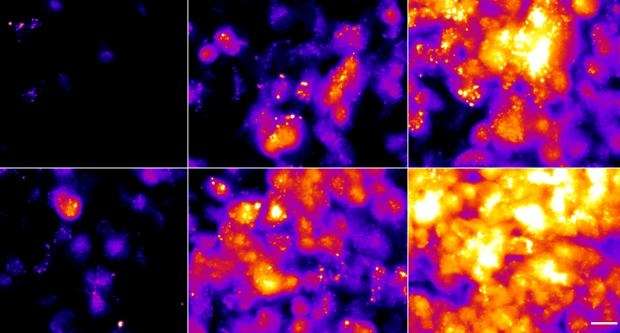Roadmap to get new cancer scans into clinic

A team of international scientists has outlined key recommendations for a global standard for scanning biomarkers in cancer - to bridge the gap between research and the clinic, according to a new paper published in Nature Reviews Clinical Oncology today (Tuesday).
Scans have transformed the way that doctors treat cancer patients and are integral to most key treatment decisions - including CT, MRI and PET scans.
But they are more than just a photograph or snap shot in time. They are a non-invasive way of getting a 3D perspective on cancer and provide dynamic information on diagnosis, staging, and decision-making during treatment - and are also used to target treatment accurately.
Many new types of scanning techniques are developed every year, including finding new biomarkers to measure what's going inside the body.
But not many end up reaching patients. This may be because the research has not yet shown them to be reliable or cost effective.
To get more tests from bench to bedside, 78 experts from Europe and North America, who specialise in imaging techniques, have identified the difficulties getting tests adopted in the clinic and set out 14 recommendations.
These include recommendations for grant submissions, for making sure results are reproducible across laboratories, for comparing scans with other tests such as liquid biopsy, and ensuring that techniques are cost effective.
For example, trials for antiangiogenics - drugs that "starve" tumours by disrupting blood vessels bringing oxygen and nutrients - have shown great promise. Advanced scanning can detect when these drugs are working in patients. But at the moment, methodologies vary greatly across hospitals and this stops these techniques being widely used in the clinic.
If all machines from different manufacturers are calibrated in the same way across different hospitals, larger clinical trials could be more easily set up to produce more powerful evidence to show if new scanning techniques are effective.
Dr James O'Connor, Cancer Research UK scientist and lead author at the University of Manchester, said: "Scans have helped advance the understanding of how cancer behaves. They have also transformed how we treat patients with cancer every day. They have shown great promise for monitoring the effects of new drugs and other treatments as they undergo development.
"If these recommendations raise the bar in imaging research, we can expect scans to play a much greater role in personalised medicine and to further improve the lives of patients with cancer having cutting edge therapies."
Jamie Meredith, Cancer Research UK's Head of Therapeutic Discovery Funding, said: "We want to make sure that the research we fund makes it to patients. An internationally agreed approach to accelerate the development and clinical use of imaging technology, could make us far more effective at diagnosing and tracking the disease.
"This is an excellent example of how the CRUK-EPSRC Cancer Imaging Centres are influencing best practice in the field."
Yan Liu, EORTC's Clinical Leader for the Medical and TRI Department said: "Academic research can play a critical role in ensuring fundamental research and technological innovation reach patients. This collaboration is a great example of how organisations can bring expertise together to identify and resolve issues in getting the imaging biomarkers introduced into clinical practice to make a bigger impact on people's lives."
More information: James P. B. O'Connor et al, Imaging biomarker roadmap for cancer studies, Nature Reviews Clinical Oncology (2016). DOI: 10.1038/nrclinonc.2016.162

















